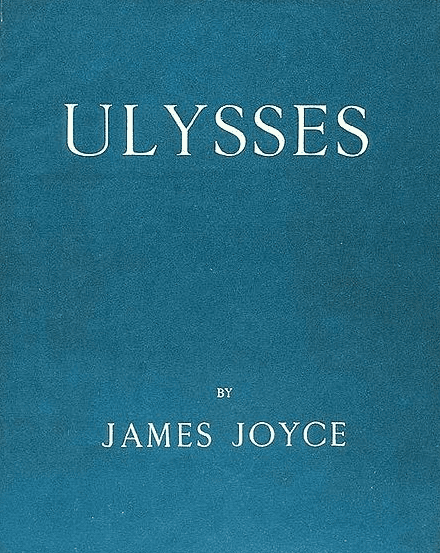Mateja Lekic
Phoenix, Arizona, United States

Ulysses is a novel that explores universal themes of the human experience. A modern retelling of the Odyssey, it follows Leopold Bloom during his encounters on the streets of Dublin in a single day. Each episode loosely follows in Odysseus’s footsteps. As Bloom travels through Dublin, he encounters the scent of the lotus eaters, the winds of Aeolus, the darkness of Hades, and the monstrous cyclops, amongst others. However, these creatures are not mythical creations, but everyday people that embody the human experience through the macrocosm of Homer.
In the Hades episode, Bloom attends the funeral of his friend, Paddy Dignam. During the ceremony, he reflects about his son Rudy, who died as an infant, and his father, who died by suicide. In the Aeolus episode, newspaper headlines whirl on each page, as if the reader is taking in the daily news. In Laestrygonians, Bloom is absorbed at a peristaltic pace into the bowels of Dublin. He is digested in butcher shops and restaurants, disgusted by the animalistic rituals. In Cyclops, stumbling into the cave of an Irish pub, Bloom battles a one-eyed jingoist and gargantuan xenophobe. In Circe, entering Nighttown, the red-light district, a hallucinogenic fog overtakes him. Here, he must face his own torment and guilt amidst dream-like shadows where his demons, sins, and vulnerabilities surface.
In Ulysses, the mundaneness and monotony of everyday life becomes expansive, everchanging, and boundless. Simple encounters are explored and found to be multifaceted and beautifully complex. Leopold Bloom is an everyday man: an advertising agent, father, and husband. He is inquisitive and cares about those around him. Throughout his day and these different encounters, memories resurface: his dead son, his wife’s infidelity, his father’s suicide, and his marriage proposal at Howth’s Head. He experiences guilt, grief, jealousy, and happiness.
The novel explores themes of birth, death, repentance, sentimentality, bereavement, patriotism, and others. The settings correspond to the subject matter. For example, in a pub Bloom encounters the Citizen, a cyclopean figure with a myopic worldview who exudes Irish nationalistic tendencies. Bloom’s perspective is progressive: “A nation? A nation is the same people living in the same place.” By contrast, the Citizen is nationalistic, intolerant, and hateful. In the red-light district of Dublin, Bloom travels through subconscious purgatory. In a psychological spiral, he meets the spirits of his past that have not left him. He is placed on trial, where his accusers bring forth former events through which he is first celebrated and praised, then defamed and demoted to outcast. Leopold burns and gives birth during this psychoanalytic prosecution. After purification and revival, Bloom has a momentary respite and sees his son Rudy at the age he would have been had he lived. He arises from his own underworld a changed man.
During the day, Leopold Bloom travels to all corners of Dublin: through an alleyway, by a canal, to a merchant shop and apothecary, to a cemetery, into a restaurant, to a hotel, along a sandy shoreline, into a hospital, and to a Cabman’s shelter. He attends funeral ceremonies and business meetings, debates moral principles, sees fireworks, and feeds seagulls. From this wearisome journey, he returns home as a rejuvenated soul. Everything from the day resonates within him. Bloom’s final trial is to reach his estranged wife. Leopold and Molly have grown apart since the death of their son; both have been adulterous, and pain and loss pervade Bloom’s consciousness. Nevertheless, he still chooses hope and love. There is still mutual affection despite their detachment. Molly has not faded away and Bloom wants to find a way back to her. Bloom has grown through the course of the day and has found consolation and peace with the ghosts that haunted him.
As Bloom emerges to gaze upon the “heaventree of stars,” carried in motion through “everchanging tracks of neverchanging space,” one sees that Joyce was never interested in reconstructing an epic odyssey, but in the construction of everything that makes us human.
MATEJA LEKIC, MD, is part of the Department of Primary Care, Phoenix VA Health Care System, and the University of Arizona College of Medicine, Phoenix, Arizona.

Leave a Reply